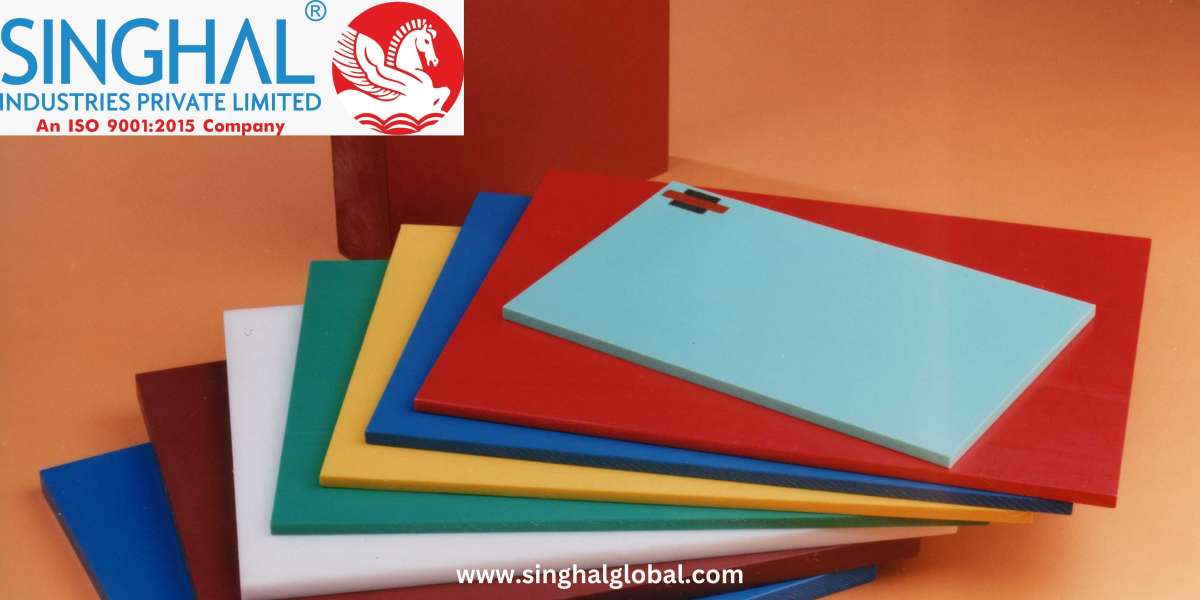ABS (Acrylonitrile Butadiene Styrene) plastic sheets are among the most versatile materials in both industrial and consumer applications. Known for their high durability, lightweight nature, and resistance to impact, 1/8 Abs plastic sheet 4x8 have found their place in numerous industries, from automotive to construction. This article will dive deep into ABS plastic sheets, their uses, benefits, and why they remain a top choice for various applications.
What is ABS Plastic?
Composition of ABS Plastic
ABS is a thermoplastic polymer composed of three distinct monomers: acrylonitrile, butadiene, and styrene. Each component offers unique properties that, when combined, produce a strong, impact-resistant plastic. Acrylonitrile provides chemical resistance, butadiene adds toughness, and styrene lends the plastic its rigid form.
Properties of ABS Plastic
ABS plastic is valued for its excellent balance between toughness and rigidity. It is highly resistant to physical impacts, making it ideal for heavy-duty applications. The material can withstand a range of temperatures and is easy to mold into various shapes, adding to its versatility.
Advantages of ABS Plastic Sheets
Durability and Strength
ABS plastic sheets are renowned for their exceptional durability. The combination of acrylonitrile and butadiene provides toughness, making the sheets highly resistant to cracks, dents, and other physical damage.
Lightweight Nature
Despite its strength, ABS is a lightweight material. This feature makes it ideal for applications where weight is a concern, such as automotive and aerospace industries.
Cost-Effectiveness
ABS plastic sheets are relatively inexpensive compared to other engineering plastics, offering excellent performance at a fraction of the cost. This makes them an attractive option for both large-scale industries and small DIY projects.
Applications of ABS Plastic Sheets
Automotive Industry
In the automotive industry, ABS plastic sheets are used for interior and exterior components. Their impact resistance makes them ideal for bumpers, dashboards, and protective housings.
Construction and Building Materials
ABS sheets are also used in construction, particularly for moldings, panels, and protective layers. Their resistance to weather and chemicals makes them an ideal choice for building materials.
Electrical Applications
ABS plastic is an excellent insulator and is commonly used in electrical enclosures and equipment housings, ensuring protection from external damage and environmental factors.
Why Choose 1/8 ABS Plastic Sheet 4x8?
Benefits of 1/8 ABS Plastic Sheet
The 1/8 ABS plastic sheet is thin yet durable, offering flexibility in application. Its lightweight nature allows it to be easily shaped while maintaining structural integrity, making it perfect for a variety of uses.
Versatility in Usage
Whether you need ABS for industrial purposes or small projects, the Abs plastic sheets suppliers provides a balance between ease of use and strength, making it a favorite among builders and engineers.
4x8 ABS Plastic Sheets: What You Need to Know
Standard Sizes and Dimensions
ABS plastic sheets typically come in standard 4x8 sizes, though custom sizes are available depending on the manufacturer. This standard size is suitable for large-scale applications without requiring multiple pieces.
How to Select the Right Thickness
Choosing the correct thickness depends on the intended use. Thicker sheets provide more durability but may be harder to cut and shape. On the other hand, thinner sheets, like the 1/8 option, offer more flexibility.
Comparison with Other Plastic Sheets
ABS Plastic Sheets vs Polycarbonate Sheets
While both ABS and polycarbonate sheets are impact-resistant, ABS is more cost-effective, whereas polycarbonate offers better clarity and weather resistance.
ABS Plastic Sheets vs Acrylic Sheets
ABS is more durable and impact-resistant than acrylic, though acrylic sheets offer higher optical clarity, making them more suitable for display and aesthetic purposes.
ABS Sheet Manufacturers: What to Look For
Quality Control in ABS Sheet Production
When sourcing ABS sheets, it’s essential to ensure they are produced under strict quality control measures. This ensures consistency in size, strength, and performance.
Certifications and Standards
Look for manufacturers that adhere to industry standards and certifications to guarantee high-quality materials that meet your project’s requirements.
How to Cut and Shape ABS Plastic Sheets
Tools for Cutting ABS Sheets
To cut ABS plastic sheets, you'll need tools like a table saw, jigsaw, or utility knife. Each tool offers a different level of precision, so the choice depends on your project's complexity.
Best Techniques for Shaping ABS Sheets
For shaping, heating the sheets allows for easy manipulation without compromising structural integrity. The best results are achieved using heat guns or specialized heating equipment.
Environmental Impact of ABS Plastic
Is ABS Plastic Recyclable?
ABS is recyclable, though the recycling process is more complex compared to other plastics. Proper recycling methods can help reduce the environmental impact of using ABS plastic sheets.
Sustainability Considerations in ABS Production
While ABS is durable and long-lasting, its production does contribute to environmental pollution. However, many manufacturers are exploring sustainable alternatives to reduce carbon footprints.
Maintaining ABS Plastic Sheets
Cleaning and Upkeep
Maintaining ABS plastic sheets is simple—regular cleaning with mild soap and water ensures their longevity and appearance.
Common Issues and Solutions
Scratches and discoloration are common issues but can be addressed with proper cleaning techniques and protective coatings.
Customizing ABS Plastic Sheets
Painting ABS Plastic
ABS plastic can be painted using specialized paints designed for plastics, allowing for customization to fit various aesthetic requirements.
Printing on ABS Plastic Sheets
With advancements in technology, Abs sheet manufacturers can be printed on using 3D printers or traditional screen printing methods, making them highly adaptable for various uses.
Best Practices for Storing ABS Plastic Sheets
Storing Conditions
ABS plastic sheets should be stored in cool, dry places away from direct sunlight to prevent warping or degradation.
Preventing Warping and Damage
Stack the sheets flat or support them vertically to avoid bending. Ensure proper ventilation to prevent any moisture buildup.
Conclusion
ABS plastic sheets are an invaluable material, offering versatility, durability, and cost-effectiveness. From automotive to construction, they remain a popular choice across industries, thanks to their lightweight nature and easy-to-mold properties. Whether you're looking for a material for industrial purposes or personal projects, ABS plastic sheets provide the perfect balance between functionality and affordability.
Frequently Asked Questions
What is the typical lifespan of an ABS plastic sheet?
ABS plastic sheets can last for decades when used and maintained correctly, making them a durable solution for long-term projects.
Can ABS sheets withstand high temperatures?
ABS sheets can tolerate moderate temperatures, but they are not suitable for extreme heat. For higher temperatures, consider alternatives like polycarbonate.








